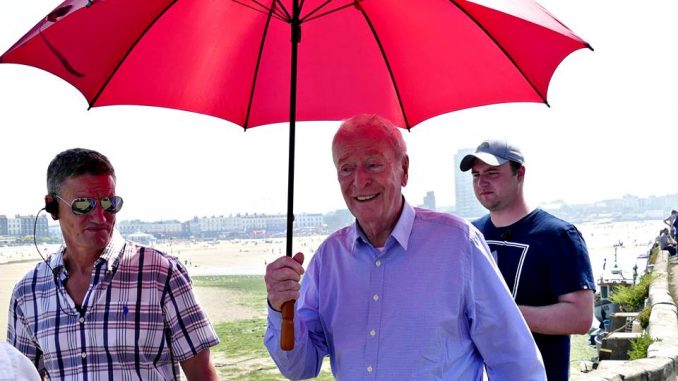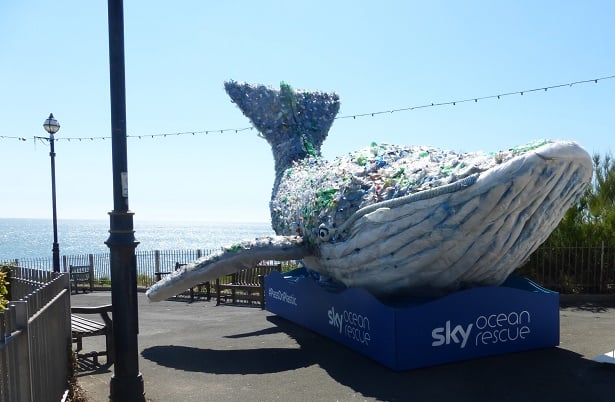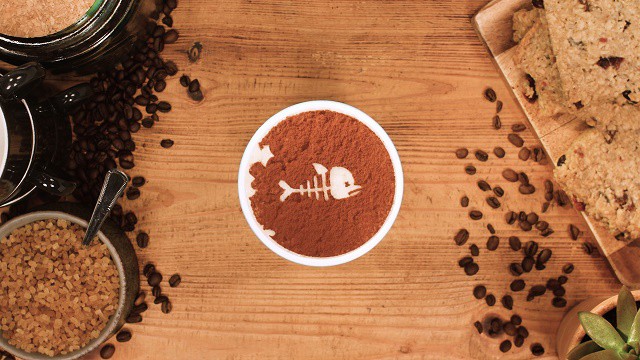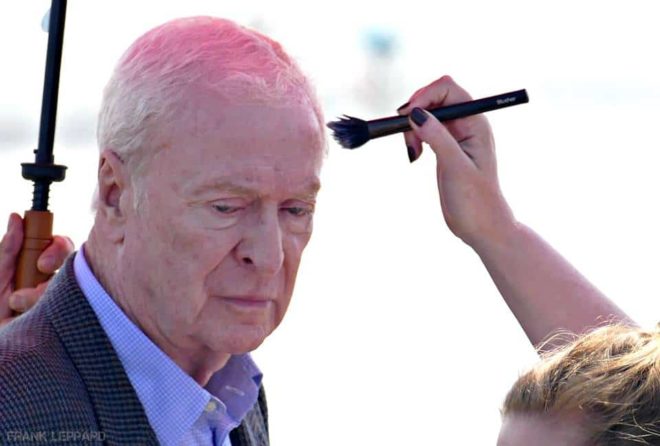
When we think of heroes, we often mention the Armed Forces, or emergency responders like the police, fire service or paramedics, and rightly so. We might also jump to famous people: athletes, musicians, actors, celebrities, role models who live our dreams in the public eye yet still maintain a level of decorum and respectability, and there is nothing wrong with that either.
An example a lot of people suggest is Sir Michael Caine, the renowned actor and generally brilliant bloke. He is indeed a legend of cinema and an inspiration for many, not just for his acting abilities but also, in-part, his working-class roots and military service.
Around this time last year, Michael Caine came to Margate for King of Thieves, a film about the Hatton Garden robbery. He was spotted filming on the harbour arm and at Nayland Rock, and now a teaser trailer for the film has finally been released, featuring Margate seafront in all its glory.
Now I must admit that Margate only appears in the trailer for two seconds, but that’s no more than Michael Gambon. That puts us on equal billing with Dumbledore, and therefore should count as a success.
It is always a pleasure to see Thanet in the cinema (a fair few films have been shot here, including the ending of World War Z with Brad Pitt), and the Isle also features on TV a lot. Whether seeing locations in programmes such as The Tunnel, or spotting local businesses like the Bus Café during ad breaks, it is not difficult to catch the extensive screen-time Thanet is currently enjoying.

It is thanks to one of these film crews that another animal has been added to Thanet’s ever-growing menagerie: a giant 10m whale visited Broadstairs for three days. It was in town as part of Sky Arts’ Landscape Artist of the Year, which was filming in Viking Bay. The whale is made of a quarter of a ton of plastic, the same as is dumped in the oceans every second.

I find visual illustrations of the scale of our waste as a species, like the plastic whale, both sobering and horrifying. I hate waste and try to reduce my own rubbish output as much as I can. Sometimes it is outside my control, though; junk mail being one example.
Just this week I have had takeaway menus, estate agent flyers, double-glazing leaflets, convenience store discounts, something about pensions, and a pamphlet on the childhood of Jesus delivered through the letterbox. Most of it is gathered up and immediately put in the recycling, which seems to be a terrible waste of paper, ink, time, and money. That being said, occasionally something interesting arrives.
Until last week I had never heard of the Bloodrunners, and I only have now thanks to the leaflet that was posted through my front door, which I have kept. As soon as I saw the word ‘Bloodrunners’ my mind was set off – perhaps writing a lot of fiction does that to the brain – and I imagined a hidden network of anonymous individuals trafficking blood across the county using high-speed vehicles, controlled by telephone calls from unlisted numbers.
As it turns out, I wasn’t far from the truth, though the organisation I conjured up had different motivations. Whilst my fictional creation was a secret society either sourcing sustenance for vampires or perhaps engaging in long-distance races driving vehicles fuelled by the red stuff, the real Bloodrunners are a team of volunteers who transport blood for the NHS, providing a life-saving service.
I had always assumed – perhaps naively – that the NHS had provisions for transporting blood, much like they do with organs, and they do: NHS Blood and Transport conduct daytime deliveries. But when it comes to out-of-hours requirements, the NHS is faced with either hiring a taxi or courier, or using the police or an ambulance. None of those options are particularly practical in terms of cost or effective use of resources. That’s where the Bloodrunners come in.
SERV Kent, standing for Service by Emergency Response Volunteers, have a team of riders and drivers who traverse the county getting blood to where it is needed, when it is needed. They are coordinated by controllers: individuals in their own homes who receive calls from hospitals and hospices, and then arrange the delivery. All the staff work voluntarily, and SERV Kent is a registered charity that provides this service at no cost to the NHS.
Last year, the Bloodrunners made 3,635 deliveries, including 393 Air Ambulance restocks and 57 transplant runs, and that is just in Kent. That is a staggering amount of work completed by people in their own time, without being paid, and they’re not the only ones.
Kent Search and Rescue is another charitable organisation, also staffed by volunteers, who assemble when called on by Kent Police to assist in finding missing persons. They go out at all hours of the day or night and – as the name suggests – search for and rescue people. They receive specialist training to do this; crossing all types of terrain for hours and hours, only stopping when they either find those who are missing or are called off by the police.

Organisations like these are, to me, perfect examples of the goodness of humanity: people who are willing to give up their own time and take responsibility for the lives and wellbeing of others, work during unsociable hours just to help, and support our emergency services by providing vital and irreplaceable assistance. They are heroes in every sense of the word, but nowhere near as famous as Michael Caine. Perhaps we should change that.

